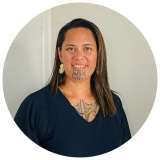OPINION


Inside the first Kaupapa Māori CDC – a powerful wānanga exploring identity, strategy and governance.
For decades, governance training in Aotearoa has largely mirrored Western corporate models – emphasising structure, compliance and bottom-line accountability. But for many Māori leaders, the frameworks they govern within are rooted in something deeper: whakapapa, whenua, whānau, tikanga and te ao Māori.
That’s why the inaugural Kaupapa Māori Company Directors’ Course (CDC), delivered by the Institute of Directors in partnership with Te Rūnanga o Whaingaroa, represents more than just a new learning opportunity. It’s a declaration that Māori governance is not a fringe adaptation of mainstream practice – it is a robust, culturally anchored system of leadership, decision-making and responsibility with its own principles, language and power.
Across Aotearoa, Māori leaders are stepping into this space with pride and purpose. The first cohort of the Kaupapa Māori CDC in Kerikeri welcomed seasoned professionals, community leaders, emerging directors and respected governance facilitators, including Jim Mather CFInstD, Susan Huria CFInstD, Alecia Wright-Chand and Kiriwaitingi Rei MInstD.
Their reflections highlight not only the course’s technical value, but its emotional and cultural significance. Together, their stories form a powerful narrative of reclamation, transformation and collective uplift.

Alecia Wright-Chand
As finance facilitator, Alecia Wright-Chand (Ngāti Awa) brought to the programme over a decade of financial expertise – from Deloitte to Fonterra, to her current leadership role at the Wise Group. But what made this experience distinct was her ability to contextualise finance within the Māori worldview.
“We had to go back to basics – what’s a balance sheet? What’s solvency? What does liquidity mean? But we didn’t stop there. We kept coming back to: what does this mean for you as a kaitiaki, a governor?”
Wright-Chand found many participants arrived with trepidation around finance – some rating themselves at the lowest levels of confidence. Yet they held governance roles with real accountability over marae, whānau trusts and community assets. “They don’t have the corporate machinery behind them – yet they carry immense responsibility.
“We had to go back to basics – what’s a balance sheet? What’s solvency? What does liquidity mean? But we didn’t stop there. We kept coming back to: what does this mean for you as a kaitiaki, a governor?”
One powerful moment came during a discussion on asset valuation. A participant shared their experience with a waka – a culturally and spiritually significant taonga. “How do you show that value on your books?” Wright-Chand asked. “It’s not just an asset – it holds generations of mana and whakapapa. But under traditional accounting, you might only record it at cost.
“That opened up a powerful conversation. It highlighted how much our traditional accounting systems struggle to reflect te ao Māori. That’s why we need a new financial language – one grounded in cultural truth.”
She also sees potential for non-Māori to engage with kaupapa Māori values in governance. “There’s a lot that pākehā-led organisations can learn – about intergenerational thinking, about accountability to people and place.”
For Wright-Chand, the biggest outcome was shifting mindsets. “I just wanted them to walk away knowing they can ask questions. Don’t leave it to someone else. This is your role, your responsibility. Be curious. Be courageous.”

Chris Henare
As a participant, Chris Henare (Ngāti Kahu, Te Whānau-ā-Apanui, Ngāti Porou) brought decades of service to the course – from teaching and tertiary education to international kapa haka leadership. But when it came to governance, Henare admitted he had long been “winging it”.
“At first, it was like play-acting, but then my heart was pumping. I was the managing director, worrying about staff safety and liability, and financial loss. It made it real. I thought I’ve got to take this seriously.”
Henare’s governance journey began, like many in te ao Māori, with a nudge from his kaumātua. “One of my uncles said, ‘Boy, I need you to come help with this marae’,” he recalls. “I had no knowledge of governance. I thought that’s for the uncles and aunties. But they saw something in me.”
His community involvement has grown organically over 25 years – along with the weight of responsibility and the need for better tools. “I started to feel I wasn’t living up to my responsibilities. I realised I needed to build that competence.”
The course, he said, was a week of “lightbulb moments”. From governance principles to risk and strategy, to finance and law, Henare found every session reframed what it meant to sit on a board.
“Finance was a game-changer. I’m a bit impulsive – my wife keeps taking the bank card off me,” he jokes. “But now I actually understand what a P&L is. I know how to read financial statements. I’m not an expert, but I know enough to take responsibility.”
Henare was especially moved by the mock board exercises, where participants took on fictional governance roles.
“At first, it was like play-acting, but then my heart was pumping. I was the managing director, worrying about staff safety and liability, and financial loss. It made it real. I thought I’ve got to take this seriously.”
Delivered in a by-Māori, for-Māori environment, the course offered a level of comfort Henare hadn’t felt before.
“We were grounded in tikanga. Karakia in the morning, kai throughout the day, plenty of laughs. That helped us open up. In a traditional setting, I don’t think our people would have felt as engaged or as safe.”
He shared a powerful metaphor that captured the course’s impact. “Before this, it felt like we were in a paddling pool – just going in circles. This course helped us build a waka, with pillars of governance, strategy, finance, law and culture. Now we’re ready to launch.”

Bree Davis
For Bree Davis (Ngāpuhi ki Whangaroa, Ngāti Kahu ki Whangaroa), Chief Executive of Te Rūnanga o Whaingaroa, the CDC was a vital step in aligning her board’s capability with the pace of her leadership journey.
“This course changed how I lead. It reminded me not to carry it all on my own. It gave our board the tools to truly lead with me – not behind me.”
“I was evolving – especially after finishing my Executive MBA. I needed my board to level up with me. I was gatekeeping too much – just pushing things through. But the board needs to be making the decisions. They must be part of the strategy.”
The ripple effect of this investment is already being felt within Te Rūnanga o Whaingaroa. Davis and her senior leadership team are re-evaluating plans, refocusing on strategic outcomes and fostering deeper alignment with the board.
“This course changed how I lead. It reminded me not to carry it all on my own. It gave our board the tools to truly lead with me – not behind me.
“We brought a real humanist lens. We were very people-focused, but we also became curious about the profit side. Suddenly, we were Googling director vacancies.
“The course helped clarify key questions: What is our purpose? Are our efforts aligned with that purpose? And most importantly, are we trying to ‘boil the ocean’?”
What makes this programme groundbreaking is not just the content – but the kaupapa.
By embedding tikanga, whakawhanaungatanga, reo and Māori leadership models, the CDC offers more than a technical education – it affirms identity, validates lived experience and empowers participants to govern as their authentic selves.
“It’s not just training,” Henare reflected. “It’s transformation.”
“People said, ‘I want something that reflects me’,” Wright-Chand noted. “That sense of cultural safety matters.”
Davis added: “It’s not just about doing things differently. It’s about doing them better – through our lens.”
All three leaders spoke to the power of the cohort – the room full of rangatira learning together, sharing experiences, laughing, challenging and growing. The course allowed space for vulnerability, the courage to ask ‘dumb’ questions and a redefinition of what effective governance looks like.
As the Māori economy and Māori organisations expand their influence, governance must evolve, too. The Kaupapa Māori CDC signals a bold shift since the IoD held its first CDC in 1991 – one that reclaims Māori space in the boardroom, empowers succession and connects ancient values to modern governance.
Wright-Chand is already advocating within Chartered Accountants Australia & New Zealand (CA ANZ) to embed more Māori financial pathways. Davis’ board is applying lessons learned to strategic realignment. Henare is preparing his own tamariki to inherit leadership roles.
“If I had done this course 10 years ago,” Henare said, “I’d probably be retired in Dubai by now.”
He laughs – but behind the humour is truth: Māori leadership, when supported with the right tools and cultural resonance, is unstoppable.
“This programme has the potential to be a game-changer,” he says. “It empowers people through culture, through knowledge. It’s humbling – it shows you how much you didn’t know – but it also gives you the confidence to lead better.”
As more Māori organisations grow in complexity and aspiration, Henare believes this course is the key to unlocking sustainable, culturally aligned leadership.
“We’ve built the waka,” he says. “Now it’s time to sail.”